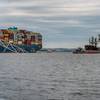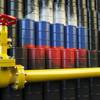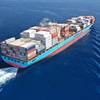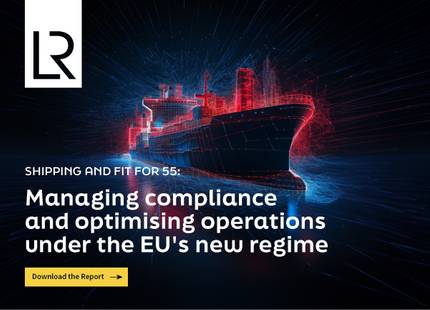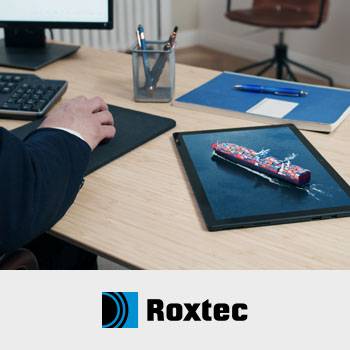Oil and Trump: Russians Full of Optimism in Davos
Twelve months ago, the mood of the Russian delegation at the World Economic Forum in Davos was distinctly gloomy, with oil prices near 12-year lows below $30 per barrel and Western sanctions depressing their economy and financial markets.
Since then, however, Russian stock and bond markets have risen about 50 percent, boosted by rebounding oil and - more recently - expectations the new U.S. presidency of Donald Trump will ease the sanctions imposed over Moscow's actions in Ukraine.
Russian officials and company executives at the forum attended by the world's political and business elites in the Swiss Alps this week were far more bullish, with many predicting the markets rally would continue this year.
"This is one of the most positive forums in the last few years. Today our Western counterparties - bankers and investors - can talk freely again about investments in Russia," Andrei Guryev, chief executive of fertiliser giant PhosAgro, told Reuters on the sidelines of the forum.
Russia's economy is still in the early stages of a recovery. There are however promising signs after more than two years of pain. Oil - a crucial source of revenue - has bounced back above $50 and Russian manufacturing expanded at its fastest pace since 2011 in December, a sign the economy is starting to grow again.
And then there's the Trump factor.
The U.S. real estate mogul won the U.S. election on Nov. 8 after a campaign that included pledges to improve ties with Russia, and this week - days before his inauguration as president - he proposed offering to end sanctions imposed on Russia over its annexation of Crimea in return for a nuclear arms reduction deal with Moscow.
"The easing of sanctions will reopen cheap foreign capital markets again for Russian companies," Guryev said. "It will stimulate local business, allow the central bank to cut interest rates and as a result spur Russia's GDP growth."
He said the lifting of sanctions could remove the 20-40 percent share price discounts on listed Russian companies that he said the punitive measures had led to.
The head of Russia's state Direct Investment Fund, Kirill Dmitriev, said corporate gains could be even steeper.
"We know that after past crises the Russian stock market was bouncing back by several times. There is potential for growth by another 50 percent and more and it is not necessarily linked to the easing of sanctions but also to economic growth," he said.
Meeting Trump Adviser
A year ago in Davos, Dmitriev - an influential executive with close ties to the government and the Kremlin - met Saudi representatives and was the first Russian official to predict that Moscow and OPEC could reach a deal to cut oil production.
Moscow agreed to cut output in tandem with the Organization of the Petroleum Exporting Countries last month.
This year, Dmitriev met Anthony Scaramucci - a former U.S. hedge fund manager who will become a White House adviser and public liaison to government agencies and businesses - on the sidelines of the forum.
Dmitriev's $10 billion sovereign wealth fund was put on one of the U.S. sanctions lists, one which however does not strictly prohibit U.S. persons from dealing with it.
"I cannot discuss sanctions... As far as the meeting is concerned, we have a feeling the new administration is ready to support business and economic contacts between Russian and U.S. companies. This is an important step towards mutual understanding," said Dmitriev.
Russia figures among the top picks for 2017 trades for Deutsche Bank, Goldman Sachs, UBS, JPMorgan, Rabobank and Bank of America Merrill Lynch among others, with Goldman predicting it "to move from a recovery to a growth phase".
Besides stock markets, Russia is also favoured by bond investors because falling inflation may bring 150-200 basis points in official interest rate cuts next year.
That would keep inflation-adjusted bond yields at among the highest in the world.
"I see that foreign investors are ready again to buy the Russian risk. This year, we will see new portfolio investors ... we will see more share flotations, the Eurobond market will also develop very actively," said Igor Bulantsev, the head of the investment banking arm at state lender Sberbank.
"Investment will also be flowing into the rouble bond market and the rouble carry trade will also likely continue," he said referring to a steep rouble appreciation last year which attracted a lot of fund inflows.
Russian corporate results have also been encouraging. Earnings-per-share, a measure of profitability, recently surpassed their 10-year average for the first time since 2012.
In recent months analysts have revised up their estimates of Russian companies' earnings at a faster pace than the rise in oil prices, Thomson Reuters Datastream shows.
However, Russia still scores poorly on all measures of corruption and transparency; its fortunes remain dependent on oil exports and a recent report by the anti-monopoly service found state ownership of the economy had doubled since 2005 to 70 percent.
"We would like to see more reform and decline in political risk but we are not convinced (this will happen)," Devan Kaloo, global head of equities at Aberdeen Asset Management, told Reuters.
"So we are mildly positive in Russia."




